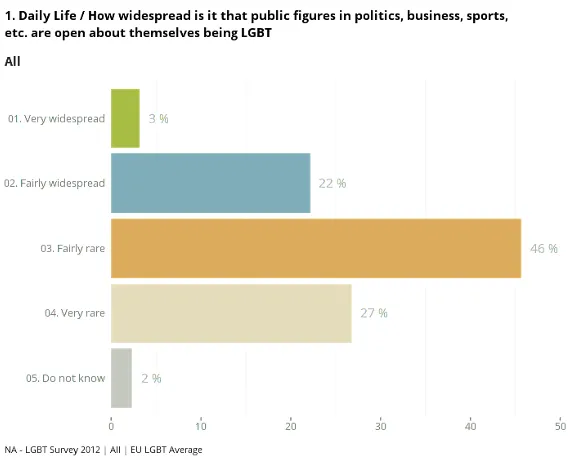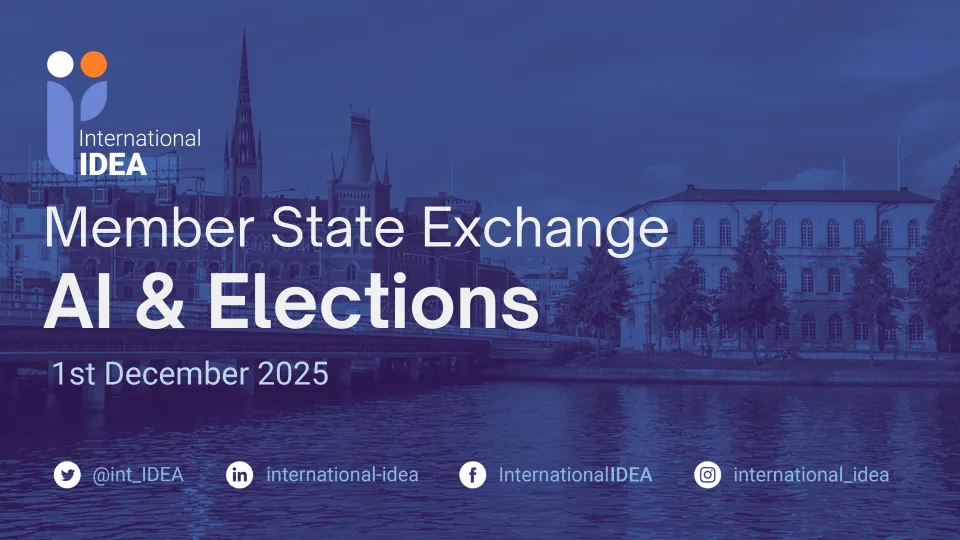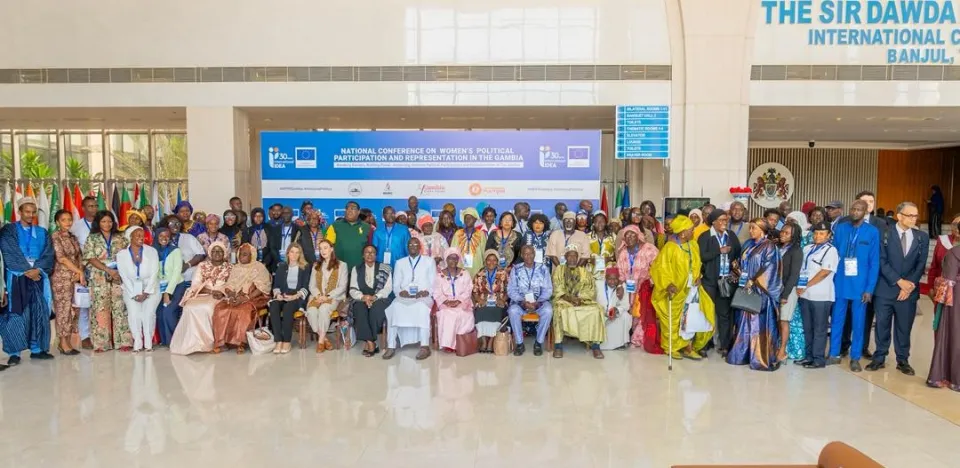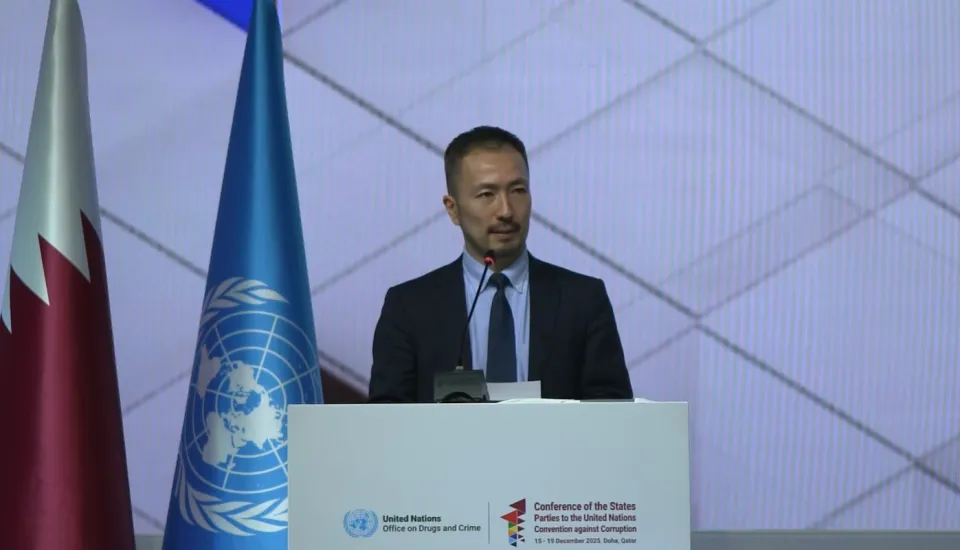Celebrating the International Day Against Homophobia, Transphobia and Biphobia

On 17 May 1990, the World Health Organization decided to remove homosexuality from its official list of mental disorders. The commemoration of this day represents an annual landmark to raise awareness on the specific issues faced by Lesbian, Gay, Bisexual, Transgender and Intersex (LGBTI) people. Established in 2004 and currently recognized in more than 130 countries around the world, the International Day Against Homophobia, Transphobia and Biphobia is a global celebration of sexual and gender diversity.
2014 marked significant developments in relation to LGBTI issues through the adoption of relevant international and regional instruments, as well as legislative and policy reforms in a range of countries. At the international level, the United Nations Human Rights Council adopted on 26 September 2014 a landmark resolution on Human Rights, Sexual Orientation and Gender Identity, recognizing the rights of LGBTI people and denouncing violence and discrimination on the grounds of sexual orientation or gender identity. In the EU context, a resolution was passed by the European Parliament urging its member states to take measures against homophobia and to tackle discrimination against LGBTI people. A ground-breaking resolution was also adopted by the African Commission on Human and Peoples’ Rights calling for the respect of LGBTI rights and condemning the increasing violence and discrimination against persons on the basis of their imputed or real sexual orientation or gender identity. Furthermore, recognizing the specific needs and concerns of transgender people, the Parliamentary Assembly of the Council of Europe (PACE) passed on 22 April 2015 a historic resolution calling its members states to allow for the recognition of third gender in identity documents and to abolish any legal requirements of compulsory medical treatment for gender reassignment.
Positive steps towards equality and inclusion of LGBTI people have also been taken at the national level. According to the 2015 Rainbow Europe, an overview of the Human Rights situation of LGBTI people in all 49 European countries published by the European Region of the International Lesbian, Gay, Bisexual, Trans & Intersex Association (ILGA-Europe), 11 countries in Europe have laws and regulations allowing same-sex marriage. Among them are the UK and Luxembourg that granted marriage and adoption rights to same-sex couples in 2014. In addition, Malta, Croatia, Estonia and Andorra have now put in place regulations recognizing registered partnerships of same-sex couples.
Japan’s LGBTI community also saw important gains with the legal recognition of registered same-sex partnerships in Shibuya Ward, one of Tokyo’s largest districts. Furthermore, in a historic decision for the inclusion of LGBTI people and their right to participate in public life, the High Court of Kenya ruled on 24 April 2015 that LGBTI groups have the right to formally register and operate freely their non-governmental organizations and that their fundamental right to freedom of association cannot be limited on the grounds of moral or religious concerns.
With regard to the rights of transgender and intersex people in particular, Malta became the first country in the world to introduce in April 2015 a law that provides for the legal recognition of transgender and intersex identities through a simple declaration before a notary based on self-determination and autonomy, while prohibiting any unnecessary medical procedures without their consent. Laws on transgender recognition were also adopted in Denmark and the Netherlands in 2014.
In other countries, the judiciary has played an important role for the recognition and protection of LGBTI rights. One such example is the Indian Supreme Court’s landmark decision recognizing transgender people as a third gender and establishing grounds for equal treatment in education and the workplace. Finally, the court of appeals in Malaysiadeclared unconstitutional a Sharia law against cross-dressing, stating that it directly affected the right of transgender people to freedom of movement, expression, and non-discrimination.
LGBTI visibility in public life
Active participation of openly LGBTI or LGBTI-friendly figures in the public sphere, especially in politics, serves as catalyst in changing public perceptions with regard to LGBTI people and promoting LGBTI equality and respect. A survey conducted by the EU Fundamental Rights Agency reveals that, as of 2012, it was fairly rare that a public figure be openly LGBTI in European Union member states.
In this context, when the current Latvian foreign minister came out as gay in 2014, he became the first openly gay high-ranking politician in the Baltic States. Openly gay and LGBTI-friendly candidates were also elected at the municipal elections in Poland and Turkey respectively.
The long journey to full LGBTI equality
Although the LGBTI community has made tremendous gains with the legal recognition of LGBTI rights and the growing presence of LGBTI people in public life in a range of countries, there is still a long path to achieve full equality and combat discrimination against LGBTI people. With more than 76 countries around the world criminalizing same-sex relationships and activities, LGBTI people are still exposed to persecution, exclusion and discrimination as a result of their sexual orientation or gender identity. On the occasion of the International Day Against Homophobia, Transphobia and Biphobia, it is important to point out that the right to sexual orientation and gender identity is a human right and any abuse of LGBTI rights constitutes a fundamental rights violation. Last but not least, it is essential to stress out the importance of diversity - including sexual and gender diversity - for the proper functioning of democracy.
International IDEA’s initiatives involving LGBTI people
International IDEA supports diversity, genuine participation and inclusion of marginalized groups in democratic and customary institutions and processes, with a specific focus on religious, ethnic and linguistic minorities, people with disabilities, young people, indigenous peoples, as well as people facing discrimination on the basis of their sexual or gender orientation and other characteristics of difference.
Specifically, International IDEA’s publication Overcoming Political Exclusion: Strategies for Marginalized Groups to Successfully Engage in Political Decision-Making presents 38 case studies on best practices implemented by marginalized groups, including LGBTI people, to overcome political exclusion. In October 2013, International IDEA organized a roundtable workshop on constitution-building processes and marginalized groups, including a thematic session on LGBTI groups. This workshop led to the publication of the Report on Marginalized Groups and Constitution Building.



